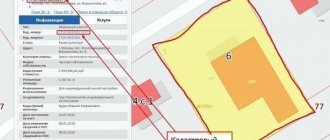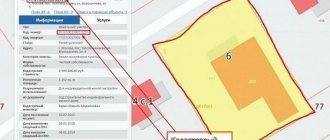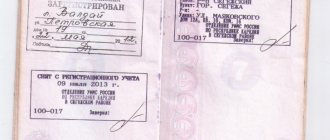The need to find out a person’s place of residence often appears when searching for alimony debtors, defendants in a lawsuit, or heirs. Sometimes this is the only way to reconnect with relatives and old friends whose contacts have been lost. In this article, we will give practical guidance on how to find out where a person is registered, we will describe ways to find registration by contacting services in person and using the Internet.
What does information about registration at the place of residence include?
When registering a citizen at his place of residence, all the data provided by him is entered into the so-called apartment card .
It contains the following information:
- residence address;
- area of housing and its number;
- Full name of the owner or tenant of the home;
- Who services this housing (name of the management company or other organization providing the resident’s utilities);
- Full name of the registered citizen. His passport details, year and month of birth, where he came from, date of registration;
- Persons living with him. The degree of their relationship, full passport data or (in the case of minors) birth certificate numbers are indicated.
Important! Let us note one point, although it is not entirely on topic. Registration has a declarative nature in our country, but its absence limits or deprives a person of access to the distribution of material and social benefits, as well as obtaining a job. Therefore, you should not neglect registration, both permanent and temporary.
Perhaps you will
Review of legislation on personal data
But before delving into questions about how people are searched using passport data, it is necessary to open the legislative acts that protect the personal data of citizens of our country .
The main one is Federal Law No. 152, which acts as a regulator for the receipt and provision of personal information . It is this legal act that clearly regulates the circulation of personal information of citizens of our country. And in order not to encounter serious problems, it is necessary to understand the essence of this law.
The scope of the Federal Law “On Personal Data” is legal relations related to the processing of personal information about citizens. This information includes:
- identification information of the citizen (full name);
- place of registration (residence);
- phone number;
- information from a general passport.
The personal information protected by this legislation is processed by various government agencies, commercial companies and ordinary citizens. Moreover, the law applies not only to information that is presented on conventional media, but also to biometric information, for example, fingerprints and retinal images.
It is on the basis of this law that a citizen personally determines who he will allow to use his personal data and for what purposes . In other words, when there is no proper permission, third parties do not have the right to process (use) personal information about a person. Based on this, obtaining personal information without compelling reasons for this is contrary to current legislation, violation of which entails liability.
Sources
- Makhov S. Yu. Legal foundations of self-defense; RSUH - Moscow, 2014. - 161 p.
- Sofya Viktorovna Vorontsova Criminal law ensuring the security of bank lending and settlements. Monograph; Prospect - M., 1980. - 341 p.
- Grupi, autorid Law on subsistence allowance / Grupi autorid. - Moscow: Gostekhizdat, 2012. - 733 p.
- Journal of Entrepreneurial and Corporate Law No. 3 (3) 2016; Justitsinform - M., 2021. - 298 p.
- A set of reviews from departments... to legitimize changes to the Code of Laws / Absent. - Moscow: Lights, 2002. - 139 p.
Why are they needed?
It is impossible in a short article to list all areas of human activity where registration information may be needed.
Let's list just a few of them:
- registration of loans, contracts, loans;
- receiving government subsidies and benefits;
- real estate transactions;
- registration for work;
- requests from government agencies.
As we see, information about registration is necessary for both the citizen and the state .
Order No. 422 of the Federal Migration Service of October 29, 2007 granted the right to request and receive registration information for both individuals and the following organizations:
- Ships;
- Bodies of inquiry and preliminary investigation;
- Operational and investigative activities;
- FMS and its territorial divisions;
FOR YOUR INFORMATION. The FMS, as an organization, was liquidated in 2021 by presidential decree No. 156 (April 4). The functions of the service were transferred to the Ministry of Internal Affairs, where the Main Directorate for Migration Issues (GUVM MVD) was established. But this transformation is unlikely to be accompanied by significant changes in the provision of services for registering citizens at the place of residence or stay. - Bailiffs;
- State bodies and local government;
- Public associations (Article 14 of the said order).
Issues of registration, deregistration, registration, as well as provision of registration information are regulated in the FMS order number 422 indicated by us.
And:
- Federal Law 5242-1 from 1993 (edited in 2021);
- administrative regulations of the Federal Migration Service;
- Registration rules;
- Federal Law of June 2, 2021 N 152-FZ “On the right to freedom of movement”;
- Housing complex of the Russian Federation;
- Family Code regarding the exercise of parental rights;
- Civil Code, in particular, Article 20 (on residence);
- decisions of the Supreme and Constitutional Courts.
Step-by-step instruction
To find out your registration address for free through the official website of the Federal Migration Service using passport data, you just need to follow a series of sequential steps, namely:
- in any browser go to the address – https://services.guvm.mvd.rf;
- select the section “Matching the document and registration address”;
- enter information based on the passport data in the fields marked with an asterisk: passport series and number, date of issue and type of registration. It is not necessary to indicate your last name, first name and patronymic;
- Enter the verification code at the bottom of the screen and submit a verification request. The example shows a set of random numbers that is generated randomly.
Now we just have to wait 15 days. It is during this period that the Ministry of Internal Affairs will check the requested information.
What information can you find out from your registration?
With this registration you can obtain the following information:
- About housing: form of ownership, area, floor, location.
- Information about registration of citizens: when registered, how many people are registered, degree of relationship, age.
- Availability of temporary or permanent registration.
- Debt for utilities.
Important! Personal data in Russia is protected by law, so only the owner of the property or the person registered, for example, in the apartment can obtain complete information.
In addition to them, information about where a person is registered can be obtained by government agencies within the framework of the powers granted to them. For example, a court or the Investigative Committee during investigative activities.
Search sites
You can find out a person’s residential address using services that offer people search. They come on both a paid and free basis. Lists of people can be filtered by different criteria - full name, job. Yandex and Google services will return all references to a person when you enter the last name in the search bar.
- Causes and treatment of chest pain
- Homemade face mask with lifting effect
- How to cook broccoli, how long?
How to check data for authenticity?
There are several ways to check your registration:
- Personal application to the passport office of the migration service or to the office at the registration address.
A corresponding request is issued, to which a response can be given either immediately (depending on the service employees) or within 30 days. - Written request. Sent by mail.
In your request you must indicate your passport details, place of residence, as well as the reason why you needed registration information.Completion period: one month + time for sending correspondence.
- Find out via the Internet .
The most reliable methods are the State Services website. The request is made in the prescribed form. The answer can be received in any form, both electronic and written. - You can contact a lawyer . They are given the right to carry out such requests.
- Appeal to law enforcement agencies , primarily to the local inspector who oversees the territory where the citizen lives.
- Finally, you can simply call the passport office and ask about the registration you are interested in.
It is not a fact that it will be answered, since employees of this service are not obliged to inform a person whose identity has not been identified, but anything can happen. It is possible that they will go to a meeting.
Attention! When checking your registration upon request online, you must take into account that guaranteed reliable information can only be obtained either on the State Services website.
Is it possible to provide only a full name or just a last name for searching?
Is it possible and how to find out a person’s registration by last name? It must be taken into account that to obtain information about registered people, it is not enough to provide information only about the first and last name of the owner .
Although such a service is advertised on the Internet, again, such fraudulent organizations request both a passport and a title document on official resources .
If you want to find out information about all registered persons in a particular apartment, you should study all the information and not make requests on third-party sites.
Otherwise, at best, you will lose money, and at worst, your data may be used for fraudulent transactions.
Can the address of registration and actual residence differ?
A person can register at one address and live in another place, in another place.
Such cases occur all the time.
There is nothing illegal about this if the very fact of living at a different address from the registered one is formalized in accordance with the requirements.
If a person stays in a particular place for more than 90 days, then he is obliged to register at this address, that is, obtain a permanent or temporary registration.
First of all, this requirement applies to citizens who are registered in one locality and live in another.
But even in the case when a person is registered at one address, but lives at another in the same locality (and for a long time), he must also register.
If you do not plan to live at your place of residence permanently, temporary registration is issued, i.e. for a certain period.
This is how it differs from constant.
In other words, permanent registration is unlimited, while temporary registration is limited in time.
Attention! Temporary registration does not cancel or replace permanent registration.
What is the liability for illegally obtaining information?
Obtaining information about registration by passport number, full name and other data may be fraught with liability for intrusion into a person’s private life. What does the law say about this?
- Article 152.2 of the Civil Code of the Russian Federation.
- Article 137 of the Criminal Code of the Russian Federation.
This article deals not only with the collection of data, but also with subsequent storage and transfer to third parties. If this happened, then the injured individual may demand compensation for the losses caused to him in court in monetary terms.
If the actions of third parties caused serious harm to a citizen in respect of whom information about his registration, including his passport number, was collected, criminal liability arises.
The sanction in this article is alternative. That is, the legislator leaves it to the discretion of the court to determine the gravity of the committed acts. Punishment ranges from a fine to imprisonment. At the same time, it is important to prove the guilt of a specific person or organization as part of a crime; accordingly, there must be real consequences from their actions.











